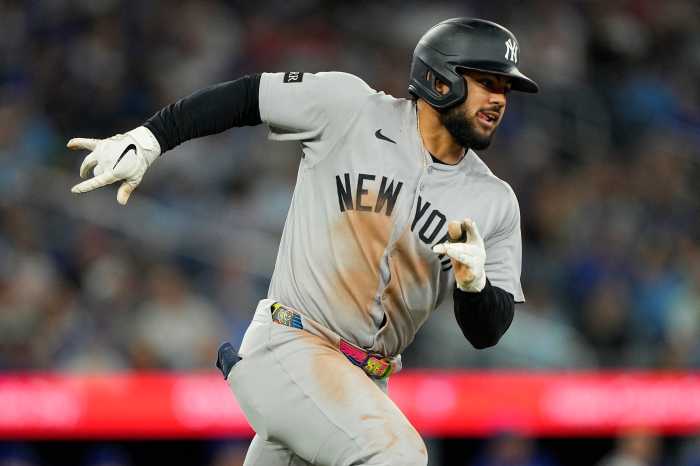
Throughout David Cone’s more than two decades as a professional pitcher — often considered during that time to be among the very best on the planet — he earned a reputation as a cerebral hurler.
So it makes sense that Cone’s autobiography, "Full Count: The Education of a Pitcher," out Tuesday, is an introspective look at both his career and all the little things that can go through a pitcher’s mind during the best and worst times on the mound.
"It’s kind of a journey," Cone told amNewYork of his book, written with Jack Curry. "I think what I wanted to do was to point out the vulnerabilities of pitchers along the way; some of the bad decisions I’ve made, some of the mistakes I’ve made. I wanted it to be a real honest account of my journey, not only as a professional pitcher, but going all the way back to childhood days."
"Full Count" is no paint-by-numbers life story, nor is it just a collection of fun or tense anecdotes from Cone’s career, which spanned 1986 to 2003 at the big-league level and parts of 13 seasons in New York for either the Mets or Yankees. The five-time All-Star explores what makes a pitcher like him tick.
Off the bat, Cone illustrates his own need to psych himself into believing he can close out his famed July 18, 1999 perfect game at Yankee Stadium. Later, he details the anguish of postseason losses to the Los Angeles Dodgers in 1988 and Seattle Mariners in 1995 that stick with him decades later.
The former, which came during his breakthrough season with the Mets, occurred after he participated in a ghostwritten New York Daily News column that became bulletin board material for L.A. The Dodgers proceeded to tag him for five runs over two innings as Cone took the Game 2 loss before the Mets bowed in seven games to the eventual champs. Cone agreed that the column and ensuing on-field result is his greatest regret as a player.
"It was just a tough lesson that I learned early, very early in my career," said Cone, who now is a color commentator for Yankees games on YES Network. "It also had an impact on that series. … I always thought that was a missed opportunity for the Mets, for our team back then in the ’80s."
While clearly proud of his accomplishments on the mound, Cone rarely dwells on his individual accolades. His lone Cy Young Award, earned with his hometown Kansas City Royals in 1994, receives far less attention than the full chapter he devotes to his take on the importance of a strong pitcher-catcher relationship, such as the ones he shared with Gary Carter and Joe Girardi with the Mets and Yankees, respectively.
Speaking of his Cy Young trophy, Cone is the first to say his sterling season deserves baseball’s dreaded A-word — an "asterisk" — because the 1994 campaign was stopped by the players’ strike. At the time the players walked off the field on Aug. 11, 1994, with the 232-day work stoppage beginning a day later, Cone had a 16-5 record through 23 starts, a 2.94 ERA and 132 strikeouts in 171 2/3 innings.
"It’s definitely different, in my mind, that we weren’t able to finish that season out," Cone said.
Cone, quick to compliment his pitching contemporaries such as Greg Maddux, Roger Clemens and Tom Glavine, stops short in "Full Count" of sharing where he thinks he stands in the hierarchy of pitchers over the last 30 years. Given his Cy Young, five World Series rings, 2,668 strikeouts, career 3.46 ERA and 61.6 WAR, a Hall of Fame case can be made. Just don’t expect him to speak on his own behalf.
"I was a little disappointed that I was one and done, but I’m not sure that I crossed the threshold to maybe make it — close, but no cigar, is how I view myself in that regard," said Cone, who failed to garner the minimum 5% of votes during his only year on the ballot in 2009. "It’s nice to have some very smart people that advocate for me, that look at numbers a little differently nowadays. I always viewed myself as not quite there in my generation of pitchers."
"I try to be honest. I try to be really objective with it," he added. "Being open to analytics helps that. There’s a lot of players maybe who aren’t that open-minded about it, and they just look at the traditional numbers and make their judgments based on that. But for me, I just really try to be objective with it, with an open mind. I really do see the Hall of Fame as the best of the best, and for my generation, I know the guys who I thought were the best, and there’s several that I see that are ahead of me."



































